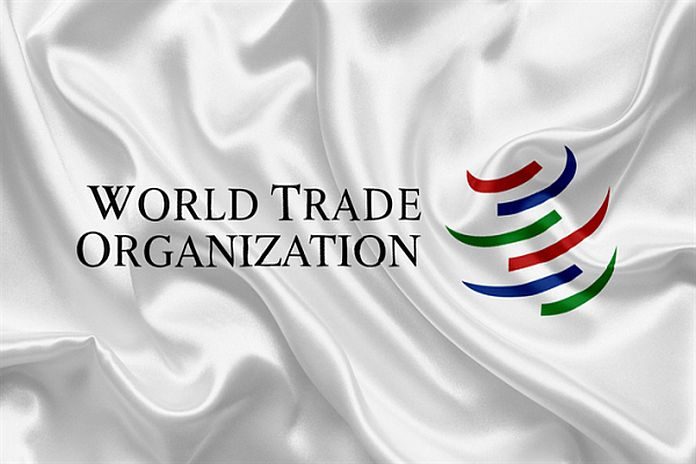By Alicia Nicholls
The World Trade Organization (WTO)’s general council on October 16, 2019, approved the request by the United States (US) for a further extension of the waiver for the trade preferences it extends to certain Caribbean countries pursuant to the Caribbean Basin Economic Recovery Act (CBERA) of 1983 and its subsequent amendments.
The CBERA is a major legislative component of the Caribbean Basin Initiative, a unilateral preferential programme operated by the US since the 1980s which extends duty-free treatment for most goods from beneficiary countries entering the US with the view to promoting economic development in the beneficiary countries. The programme is non-reciprocal as these countries are not required to extend similar treatment to US goods.
Initially, the programme also included the Dominican Republic and several Central American countries as well, but these ceased being beneficiaries after entering into free trade agreements (FTAs) with the US.
Seventeen Caribbean countries and territories currently benefit from the programme. These are Antigua and Barbuda, Aruba, The Bahamas, Barbados, Belize, Curaçao, Dominica, Grenada, Guyana, Haiti, Jamaica, Montserrat, St Kitts and Nevis, Saint Lucia, St Vincent and the Grenadines, Trinidad and Tobago, and the British Virgin Islands. Haiti also enjoys additional benefits under the Haitian Hemispheric Opportunity through Partnership Encouragement Act of 2006, the Haitian Hemispheric Opportunity through Partnership Encouragement Act of 2008, and the Haitian Economic Lift Program Act of 2010.
Because the US only extends this preferential treatment to a select group of countries, the programme would be in violation of the non-discrimination principles undergirding the WTO, most specifically, paragraph 1 of Article I of the WTO’s General Agreement on Tariffs and Trade (GATT) which speaks to Most Favoured Nation treatment. The US has, therefore, had to request waivers of its obligations under paragraph 1 of Article I of the General Agreement on Tariffs and Trade 1994 (GATT 1994) and paragraphs 1 and 2 of Article XIII of the GATT 1994 in order to maintain the programme.
The US first obtained a waiver under the GATT (precursor to the WTO) in 1985 and obtained subsequent waivers under the WTO. The previous waiver decision of May 5, 2015, would have expired on December 31, 2019. The current WTO waiver decision extends the waiver until September 2025.
In the preamble to its decision, the general council listed several factors it took into consideration. Among these were:
- The exceptional situation of the CBERA and CBTPA beneficiary countries, and the stated objective of the CBERA as amended to assist the trade and economic development and recovery of Caribbean Basin countries by encouraging the expansion of productive capacity in those countries in response to more liberal access and new trading opportunities;
- The preferential treatment provided under the CBERA as amended will not alter benefits provided under the US generalized system of preferences to other developing countries; that the duty-free treatment provided under CBERA should not prejudice the interests of other members not benefiting from such treatment, and that it is expected that the extension of such duty-free treatment will not cause a significant diversion of United States imports of products eligible under CBERA originating in Members who are not beneficiary countries;
- Assurances given by the United States that it will promptly enter into consultations, on request, with any interested member with respect to any difficulty or matter that may arise as a result of the preferential treatment provided under the CBERA as amended.
Under the waiver, the US is required to submit to the general council an annual report on the implementation of the trade-related provisions of the CBERA with a view to facilitating the annual review provided for in paragraph 4 of Article IX of the WTO Agreement. It is also required to promptly notify the General Council of any trade-related measure taken under CBERA, in particular, any changes in the designation of beneficiary countries, as well as any modification being considered in the list of eligible products and the duty-free treatment provided. The US is also required to give the general council all the information it may deem appropriate relating to such action. The United States is additionally required to consult with regard to any modification being considered in the list of eligible products
In September, the US International Trade Commission recently released its biennial report on the programme’s operation. The report found that overall, the US’ total imports from CBERA countries grew from $5.8 billion in 2017 to $6.1 billion in 2018. This translates to an increase of 4.7 percent. Turning specifically to US imports under the CBERA programme, those grew from $1.5 billion in 2017 to $1.7 billion in 2018, an increase of 9.1 percent. US imports under CBERA accounted for 27.8 percent of all imports from CBERA beneficiaries.
Alicia Nicholls, B.Sc., M.Sc., LL.B., is an international trade and development consultant with a keen interest in sustainable development, international law and trade. You can also read more of her commentaries and follow her on Twitter @LicyLaw.





